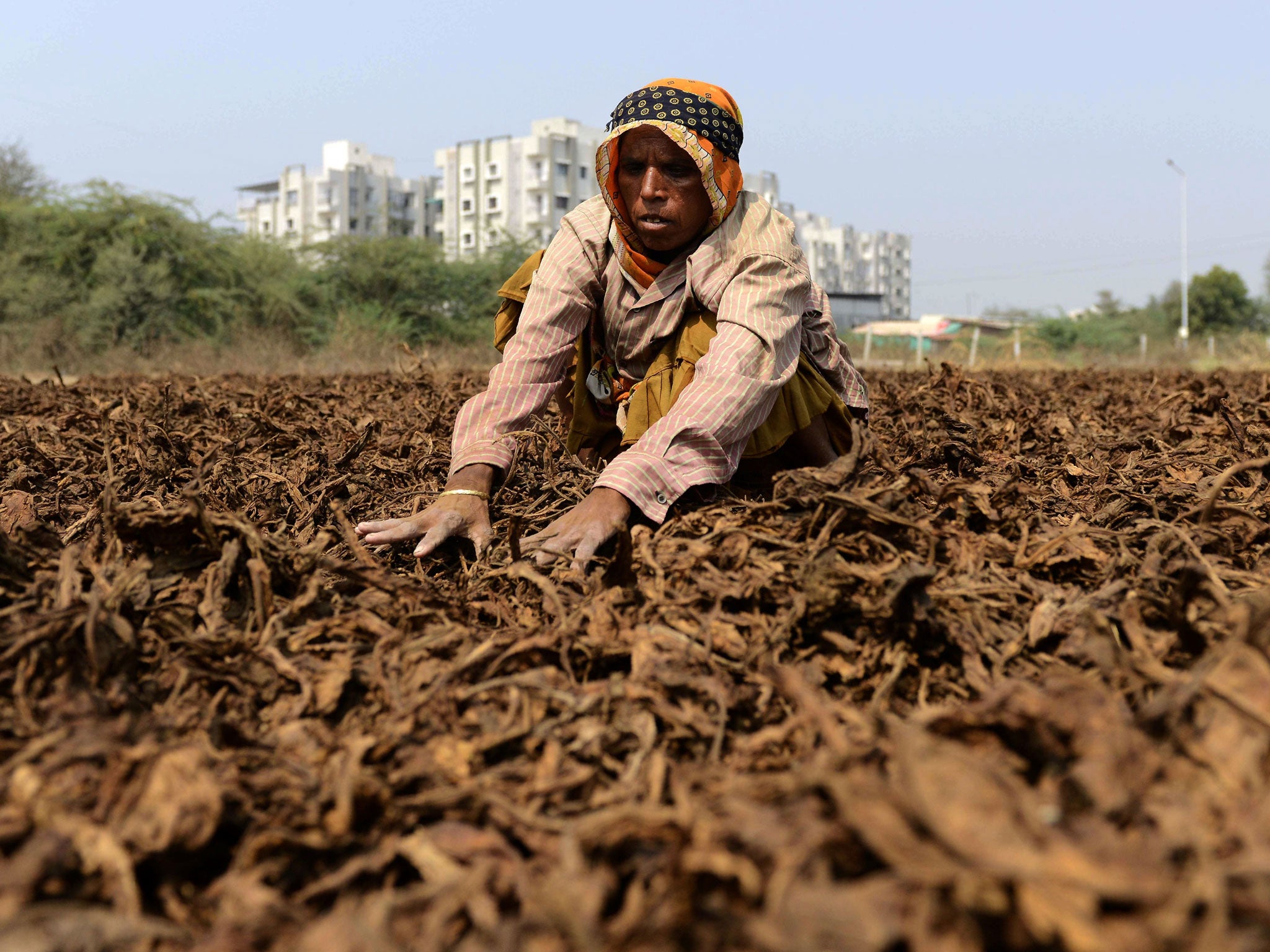Cost of cigarettes must rise to reflect environmental damage from tobacco industry, WHO says
Sector's carbon footprint is comparable to entire countries, study finds

Your support helps us to tell the story
This election is still a dead heat, according to most polls. In a fight with such wafer-thin margins, we need reporters on the ground talking to the people Trump and Harris are courting. Your support allows us to keep sending journalists to the story.
The Independent is trusted by 27 million Americans from across the entire political spectrum every month. Unlike many other quality news outlets, we choose not to lock you out of our reporting and analysis with paywalls. But quality journalism must still be paid for.
Help us keep bring these critical stories to light. Your support makes all the difference.
The price of a packet of cigarettes should rise to reflect the wide-ranging environmental damage caused by the tobacco industry, from deforestation to water pollution, a major report has recommended.
Backed by the World Health Organisation (WHO), the study found the industry’s carbon footprint was comparable to entire countries.
Tobacco farms accounted for the loss of around 5 per cent of forests in parts of Asia and Africa, it stated.
The UK was among the countries singled out for criticism along with several other western nations which were condemned for “literally burning poorer countries’ resources”.
Cigarette production and consumption have seen dramatic growth in recent decades with around six trillion cigarettes manufactured annually for an estimated one billion smokers.
Tobacco production is often more environmentally damaging than that of essential commodities such as food crops, the study by the WHO Framework Convention on Tobacco Control found.
But while the health implications of smoking are well known, the cost to the planet is often overlooked.
The report’s authors accused tobacco firms of having been “quick to capitalise on weaker regulatory frameworks and growing populations” in lower income countries to shift the environmental and social burden overseas.
They were also sceptical about the level of carbon emissions multinational tobacco firms said were linked to cigarette production, noting that these totals were significantly lower than those recorded by scientists working on the study.
“Tobacco transnationals based in high income countries are literally and metaphorically burning the resources and the future of the most vulnerable people on our planet," said Dr Nicholas Hopkinson of the National Heart and Lung Institute at Imperial College London, who co-authored the report.

Annual tobacco production contributes almost 84 million tonnes of carbon dioxide-equivalent emissions to climate change – around 0.2 per cent of the global total, the report found. This is equal to the emissions of Peru or Israel and more than twice that of Wales.
More than 20,000 square miles of land is taken up around the world to accommodate tobacco farms, which use more than 22 billion tonnes of water, meaning a person smoking a pack of 20 cigarettes a day for 50 years is responsible for 1.4 million litres of water depletion over their lifetime.
Additional environmental and social costs of the industry include soil depletion, high levels of pesticide use and child labour, the study said.
In China, the world’s top cigarette consuming country, 2.5 trillion cigarettes are produced each year using millions of tonnes of water and thousands of square miles of arable land. At the same time, China is experiencing severe water shortages and nearly 134 million people suffer from undernourishment.
“The environmental impacts of cigarette smoking, from cradle to grave, add significant pressures to the planet’s increasingly scarce resources and fragile ecosystems," said Professor Nick Voulvoulis, from the Centre for Environmental Policy at Imperial College, who co-authored the report.
In the UK, which has very little domestic tobacco production, smoking cigarettes “is done entirely at the expense of other nations’ resources and environmental health”, the report said.
Almost 90 per cent of all tobacco growing is concentrated in the developing world, but the authors noted that most of the profits from the industry end up in developed countries.
Governments are being urged to respond to the problem by increasing taxes on cigarettes and rolling tobacco, taking into account the cost of damage to ecosystems and carbon pricing to address climate change.
Fines should also be imposed to punish companies whose tobacco contributes to deforestation or water pollution, the authors said.
A ban on single-use filters used with rolling tobacco and the elimination of unnecessary packaging was also recommended.
“As well as the death and disease caused by active and passive smoking, the public need to be aware of the environmental impact of the tobacco industry,” said Dr Hopkinson. “Cigarettes should be thought of as an unethical product, not just as one that is harmful to individual consumers.”
Join our commenting forum
Join thought-provoking conversations, follow other Independent readers and see their replies
Comments